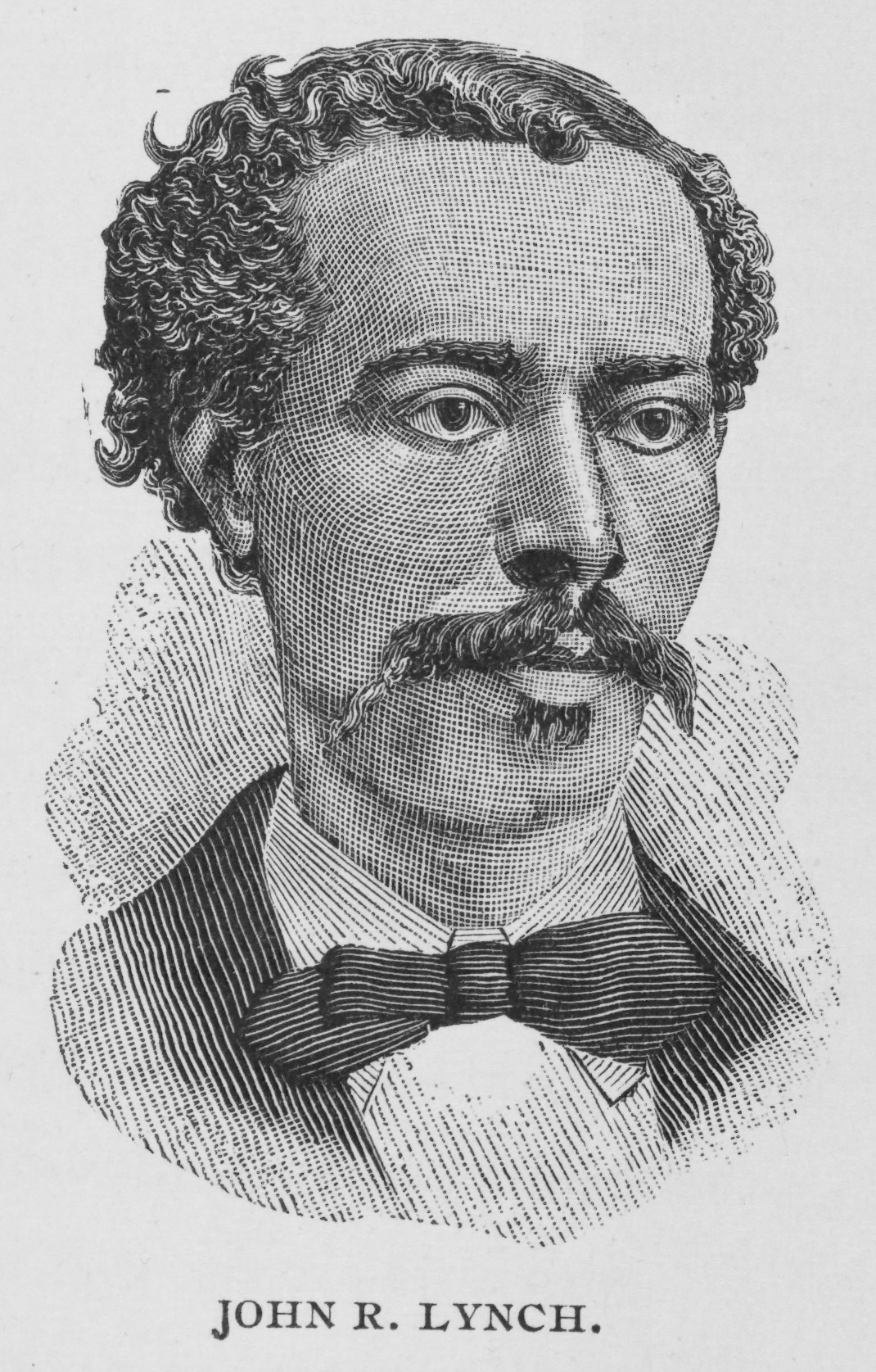|
John Roy Lynch
John Roy Lynch (September 10, 1847 – November 2, 1939) was an American writer, attorney, military officer, author, and Republican politician who served as Speaker of the Mississippi House of Representatives and represented Mississippi in the United States House of Representatives. Lynch was born into slavery in Louisiana and became free in 1863 under the Emancipation Proclamation. During Reconstruction, Lynch became a prominent political leader in Mississippi. In 1873, Lynch was elected as the first African-American Speaker of the Mississippi House of Representatives; he is considered the first Black man to hold this position in any state. He was among the first generation of African Americans from the South elected to the U.S. House of Representatives and served in the 44th, 45th, and 47th Congresses. In 1884, he was elected temporary chair of the Republican National Convention and delivered the convention's keynote address. After Democrats regained power in the Miss ... [...More Info...] [...Related Items...] OR: [Wikipedia] [Google] [Baidu] |
Mississippi
Mississippi () is a state in the Southeastern region of the United States, bordered to the north by Tennessee; to the east by Alabama; to the south by the Gulf of Mexico; to the southwest by Louisiana; and to the northwest by Arkansas. Mississippi's western boundary is largely defined by the Mississippi River. Mississippi is the 32nd largest and 35th-most populous of the 50 U.S. states and has the lowest per-capita income in the United States. Jackson is both the state's capital and largest city. Greater Jackson is the state's most populous metropolitan area, with a population of 591,978 in 2020. On December 10, 1817, Mississippi became the 20th state admitted to the Union. By 1860, Mississippi was the nation's top cotton-producing state and slaves accounted for 55% of the state population. Mississippi declared its secession from the Union on January 9, 1861, and was one of the seven original Confederate States, which constituted the largest slaveholding states in t ... [...More Info...] [...Related Items...] OR: [Wikipedia] [Google] [Baidu] |
Republican National Convention
The Republican National Convention (RNC) is a series of presidential nominating conventions held every four years since 1856 by the United States Republican Party. They are administered by the Republican National Committee. The goal of the Republican National Convention is to officially nominate and confirm a candidate for president and vice president, adopt a comprehensive party platform and unify the party, as well as publicize and launch the fall campaign. Delegates from all fifty U.S. states and from American dependencies and territories such as Puerto Rico and the Virgin Islands attend the convention and cast their votes. Like the Democratic National Convention, the Republican National Convention marks the formal end of the primary election period and the start of the general election season. In 2020 all parties replaced the usual conventions with short online programs. Delegations The party's presidential nominee is chosen primarily by pledged delegates, which are in ... [...More Info...] [...Related Items...] OR: [Wikipedia] [Google] [Baidu] |
Zanesville, Ohio
Zanesville is a city in and the county seat of Muskingum County, Ohio, United States. It is located east of Columbus and had a population of 24,765 as of the 2020 census, down from 25,487 as of the 2010 census. Historically the state capital of Ohio, Zanesville anchors the Zanesville micropolitan statistical area (population 86,183), and is part of the greater Columbus-Marion-Zanesville combined statistical area. History Zanesville was named after Ebenezer Zane (1747–1811), who had blazed Zane's Trace, a pioneer trail from Wheeling, Virginia (now in West Virginia) to Maysville, Kentucky through present-day Ohio. In 1797, he remitted land as payment to his son-in-law, John McIntire (1759–1815), at the point where Zane's Trace met the Muskingum River. With the assistance of Zane, McIntire platted the town, opened an inn and ferry by 1799. In 1801, Zanesville was officially renamed, formerly Westbourne, the chosen name for the settlement by Zane. From 1810 to 1812, t ... [...More Info...] [...Related Items...] OR: [Wikipedia] [Google] [Baidu] |
Ireland
Ireland ( ; ga, Éire ; Ulster Scots dialect, Ulster-Scots: ) is an island in the Atlantic Ocean, North Atlantic Ocean, in Northwestern Europe, north-western Europe. It is separated from Great Britain to its east by the North Channel (Great Britain and Ireland), North Channel, the Irish Sea, and St George's Channel. Ireland is the List of islands of the British Isles, second-largest island of the British Isles, the List of European islands by area, third-largest in Europe, and the List of islands by area, twentieth-largest on Earth. Geopolitically, Ireland is divided between the Republic of Ireland (officially Names of the Irish state, named Ireland), which covers five-sixths of the island, and Northern Ireland, which is part of the United Kingdom. As of 2022, the Irish population analysis, population of the entire island is just over 7 million, with 5.1 million living in the Republic of Ireland and 1.9 million in Northern Ireland, ranking it the List of European islan ... [...More Info...] [...Related Items...] OR: [Wikipedia] [Google] [Baidu] |
Dublin
Dublin (; , or ) is the capital and largest city of Ireland. On a bay at the mouth of the River Liffey, it is in the province of Leinster, bordered on the south by the Dublin Mountains, a part of the Wicklow Mountains range. At the 2016 census it had a population of 1,173,179, while the preliminary results of the 2022 census recorded that County Dublin as a whole had a population of 1,450,701, and that the population of the Greater Dublin Area was over 2 million, or roughly 40% of the Republic of Ireland's total population. A settlement was established in the area by the Gaels during or before the 7th century, followed by the Vikings. As the Kingdom of Dublin grew, it became Ireland's principal settlement by the 12th century Anglo-Norman invasion of Ireland. The city expanded rapidly from the 17th century and was briefly the second largest in the British Empire and sixth largest in Western Europe after the Acts of Union in 1800. Following independence in 1922, Dubli ... [...More Info...] [...Related Items...] OR: [Wikipedia] [Google] [Baidu] |





